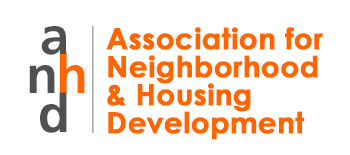The City Needs Updated Zoning to Preserve Industrial Jobs
This month, the City Council held a hearing on Industrial Land Use. A broad spectrum of workers, small business owners, community organizations and advocates joined with elected officials at a press conference and in the hearing itself to advocate for the preservation and expansion of the City’s industrial job sector. Industrial jobs provide a crucial source of well-paid, career-track jobs for many of New York City’s most under-employed communities. One of the participants in the press conference was Mayra Tenasaca, a garment worker in Long Island City and a member of Workers United, who spoke about the importance of protecting the City’s manufacturing jobs.
The problem is, this growing sector is threatened by a zoning structure that allows for as-of-right uses such as hotels, big box stores, and self-storage in M-zoned areas, and a real estate market that heavily rewards these higher-paying uses. Last week’s city budget proposal included a welcome increase in funding for Industrial Business Service Providers. Unfortunately, the Administration has put forth no complimentary plan to address industrial land use – and without land use reform, industrial space in the city will continue to be lost.
Many communities are concerned, too, about how proposed neighborhood rezonings will impact industrial businesses and jobs. In both the East New York and Jerome Avenue proposed rezonings, a significant portion of the City’s proposal involves turning land currently occupied by industrial businesses into housing. At the hearing, when pressed about the opportunity to incorporate stronger zoning for the East New York Industrial Business Zone into the overall plan for the neighborhood, DCP Chair Carl Weisbrod made it clear that the administration intends to leave that area alone. But refraining from rezoning an IBZ into housing is not the same as ensuring that industrial uses can grow and thrive there. And IBZ’s are not the only areas in need of further protection – 43% of the City’s M-zoned land is currently outside of any IBZ.
Reducing inequality in New York City will require acting on multiple fronts. Certainly, more affordable housing is desperately needed. But the affordability crisis must be viewed from a broader lens that looks not only at housing prices, but also at the opportunities New Yorkers have to earn enough to afford to live here. Land use reform to preserve and expand industrial jobs needs to be a central part of the Mayor’s equity vision. At the hearing, Weisbrod promised that a comprehensive Industrial plan from the Administration is coming – ANHD and our allies look forward to its release.
Blogger: Emily Goldstein, Senior Campaign Organizer, ANHD
Blog team: Benjamin Dulchin, Jonathan Furlong, Moses Gates, Emily Goldstein, Ericka Stallings, Jaime Weisberg, Barika X. Williams. Editor, Anne Troy
 ANHD 2016 Building the Community Development Movement
ANHD 2016 Building the Community Development Movement
